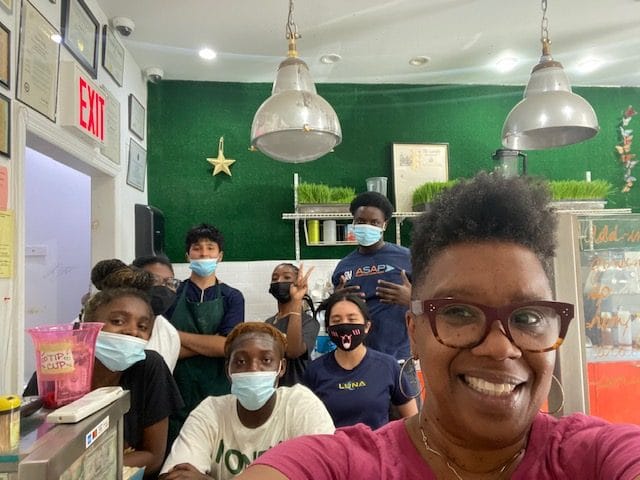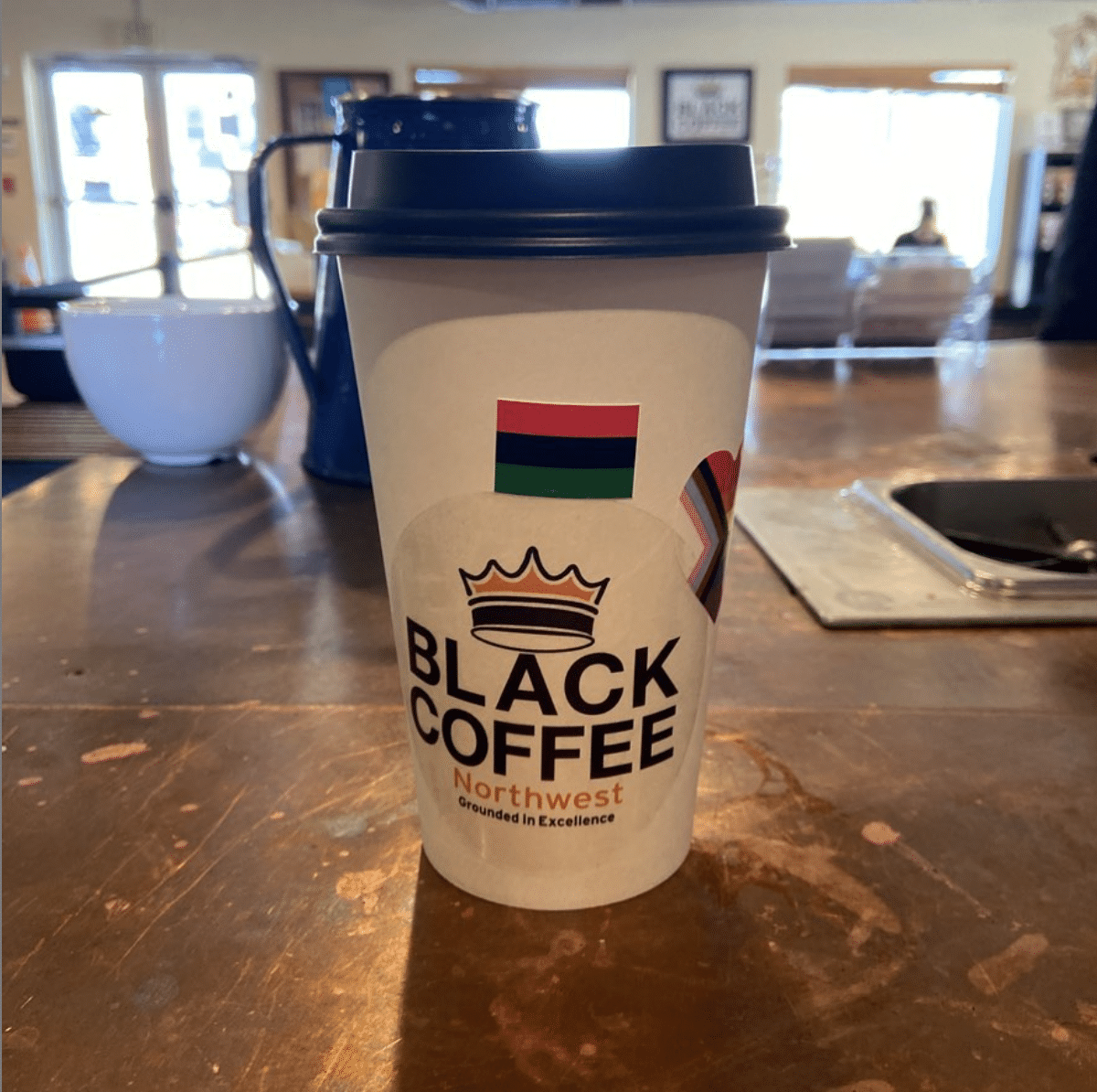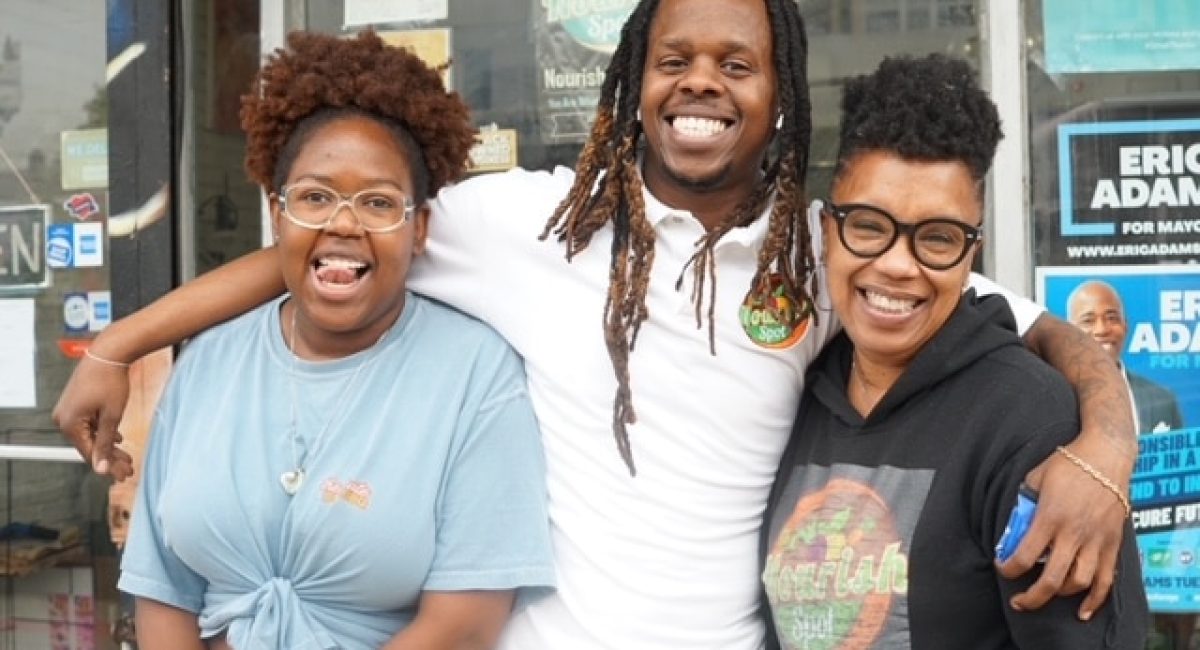By Natelegé Whaley
Sebastian Roseway, the creator of Bash Eats, learned the ropes of the food industry as a former intern of The Nourish Spot, a juice bar in Jamaica, New York. At Black Coffee Northwest in Shoreline, Washington, interns completed presentations that offered solutions to social justice issues in their communities while learning barista training. A former intern who worked at Dojo Cafe in San Diego, California, rose the ranks to become a shop co-owner.
These are some of the success stories shared by small Black-owned food businesses about the outcomes of their youth apprenticeships and internship programs. The specialized programs are giving young people who have been shut out of career advancement opportunities the chance to gain knowledge of the food service industry, empowering them to work as employees or to be their own bosses. Beyond business and culinary acumen, youth find invaluable social support and guidance on how to give back to their communities in these spaces.
“We try to give them a holistic training, so it’s not just about work, it’s also about life in general, finances and more,” says Dawn Kelly, the founder, and CEO of the juice, smoothie, and salad bar, The Nourish Spot, which opened in 2017.
RELATED: Feed the Soul Foundation Announces $250k to Black-Owned Culinary Businesses
Developing a Pipeline of Talent

Through their hospitality and culinary talent pipeline, the shop has trained at least 100 young people. Her daughter and co-owner, Jade Duncan, spearheaded the program in 2018, partnering with local community organizations, the city’s summer youth employment program, and the Workforce Innovation and Opportunity Act program at the local August Martin High School to fill positions. Participants are ages 17 to 19 and work a six to eight week internship. Students learn the ins and outs of the business from food prep to customer service, marketing, and everything in between. Kelly says her current store leads are former interns and other former interns go on to work in the hospitality industry.
“We’re happy to be part of any program that is helping young people get ready for the marketplace and get ready to jump in with both feet — as employees or as entrepreneurs,” Kelly says.
Culturally, the programs are part of a long history of trade apprenticeships, where blacksmiths, craftspeople, and other workers who were skilled in both functionary and specialized trades would take young people under their wings, exchanging cheap labor for training in lucrative skills. Politically, the programs descend from early workforce legislation like the National Apprenticeship Act of 1937 and Marion Barry’s signature summer youth employment program from the 1970s, which made summer employment opportunities available to every school-age resident.
RELATED: Revisiting the Black Panthers’ Free Breakfast for Children Program
Now, Sens. Amy Klobuchar and Jerry Moran are pushing for a new bill as part of the country’s COVID recovery plan that would boost efforts for workers to receive college credits for apprenticeship training and build on the Registered Apprenticeship-College Consortium.
But few of those efforts have focused on using youth employment, apprenticeship, or the workplace in general as an avenue for building sociopolitical consciousness and generating solutions to problems that business ownership can’t fix.
Purpose-Driven Programs

At Black Coffee Northwest, Darnisha Weary, the co-owner and director of the shop’s internship program which hosts youth as young as 12 to 18, emphasizes the mission behind Black Coffee, which is putting the community first. Weary designed the program so that each participant found a cause they were passionate about in their local neighborhood and created a presentation around solutions. Students covered topics such as food insecurity and child sex work. The interns then learned about coffee after the research project. The goal is to give a new generation of Black youth the foundation to found their own cafes.
“We want diversity in the coffee industry and want a lot more black-owned coffee shops, businesses, and more places like ours that are also really unapologetic and unafraid to say that the Black community and Black businesses should be heard and will be first no matter what,” says Weary on the shop’s mission.
RELATED: Video – Ethiopian Coffee Ceremony with Addis NOLA
Carlos McCray, the founder of the Dojo Cafe, uses his social work background to inform his multi-faceted approach to his establishment’s internship program, which partners with the local Pathway Community Services. Young people, ages 16 to 24, learn barista training and customer service skills, how to improve soft skills that can be transferable to other jobs, event planning focused on community outreach to non-profits, and life skills such as budgeting and financial acumen.
“The more we role model what’s possible in entrepreneurship and how to start your own business and create a legacy for your family, that’s the only way we’re ever going to make it as people,” says McCray. “Nobody else will show us, so it’s up to us to take matters into our own hands. We need to do what we can. We need to pass it forward.”


